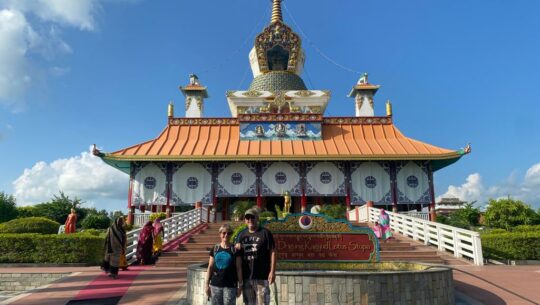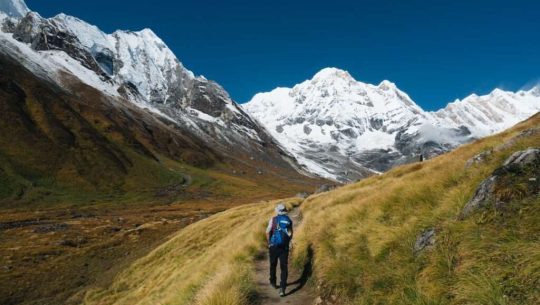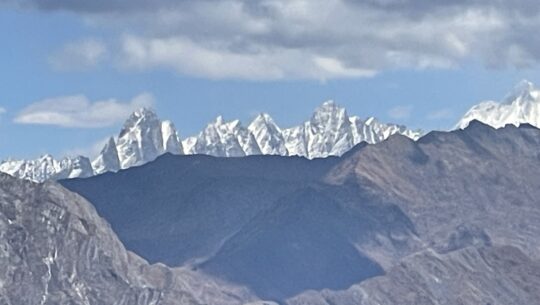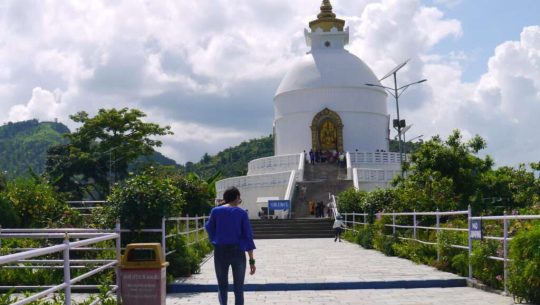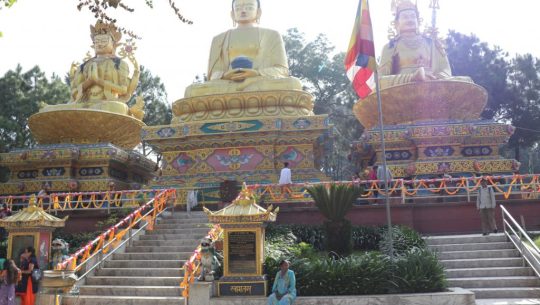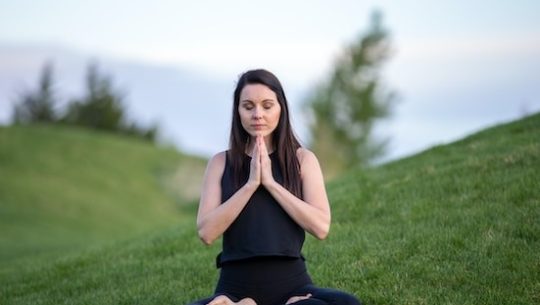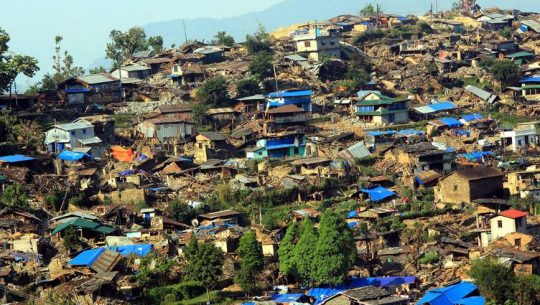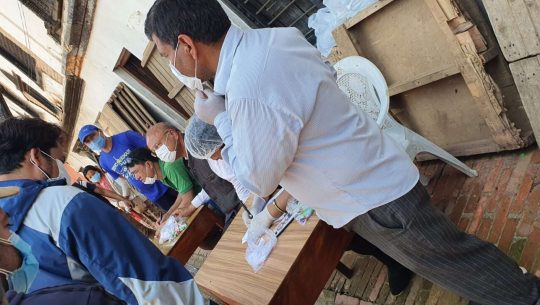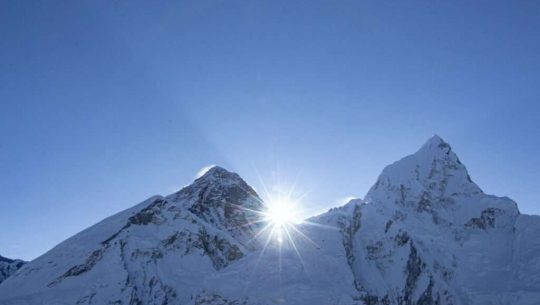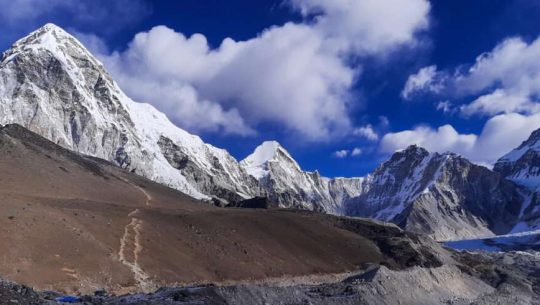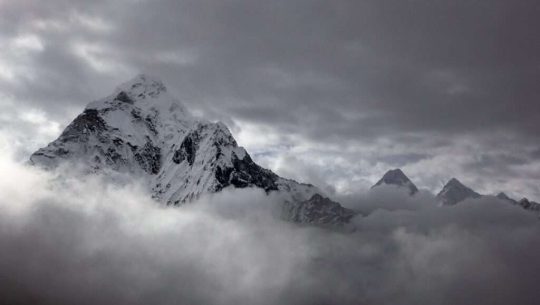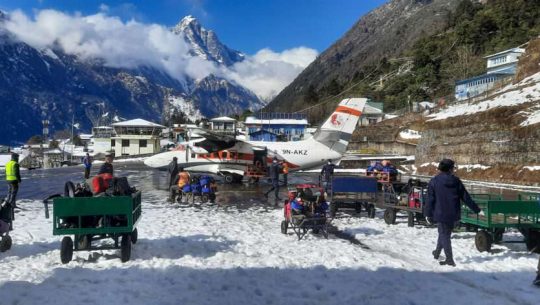Historical Gorkha Village Tour – 9 Days

USD 550
9 Days
Easy
By Public Bus or Private Vehicle
2-15
through out the year
Historical Gorkha Village Tour – 9 Days Brief Insight
Brief Introduction to Gorkha District
Gorkha is the most important district of Gandaki province from the historical, religious, and cultural point of view. Geographically, this district is spread from the mid-hill region to the northern Himalayan region and is rich in biological diversity and important from the point of view of tourism. This district covers an area of 3610 square kilometers. Hot, temperate, subtropical, subtropical and mountainous climates are found in this district.
From the political and administrative point of view, this district has been divided into 2 constituencies of the union and four constituencies of the state. Likewise, it has been divided into 2 municipalities and 9 rural municipalities, namely, Gorkha Municipality, Palungtar Municipality, Ajirkot Rural Municipality, Arughat Rural Municipality, Gandaki Rural Municipality, Chumanuvri Rural Municipality, Dharche Rural Municipality, Bhimsen Rural Municipality, Sahid Lakhan Rural Municipality, Siranchok Rural Municipality, Sulikot Rural Municipality.
The eastern border of this district includes Dhading District and Tiwat (China), the western border includes Tanahun, Lamjung, Manang District and Tiwat (China), the northern border includes Tiwat (China) and the southern border includes Chitwan, Tanahun and Dhading District. Diss. According to the census of 2068, the total population of Gorkha district is 271061 with 150020 females and 121041 males.
Historical monuments like Gorkha Durwar, Gorakhnath Temple, Lower Durwar, religious monuments like Mankamana Temple, Gorakhkali Temple, lakes and ponds like Kalchuman Lake, Kalatal Narakunda, Dudhpokhari, snow peaks like Manaslu, Himalchuli, various coats, monasteries and caves are the main attractions here.
Historical background
Gorkha district is credited with unifying the state of Nepal. At that time, Magars of Ghale type used to rule in a place called Lilig. There was a tradition that every year on the day of Vijayadashami, the first runner in the race was made king. While attending the festival, Dravya Shah unexpectedly attacked and established his dominance there. Immediately after the victory over Liligkot, the Gorkhas attacked and fought for 15 days, so the Gorkhas could not be victorious. Dravya Shah was very ambitious and the first defeat did not affect him much. Bhagirath Pant, Ganesh Pandey, Sarveshwar Khanal, Gangaram Rana, Gajanan Bhattarai, Keshav Bohora, Murali Khawas were increasing his enthusiasm. Dravya Shah’s soldiers including Thapa, Bhusal, Maske and Ranas surrounded and attacked the palace of the King of Gorkha. King Khadka gained heroism from the arms of Dravya Shah. Thus V.S. 1616 Bhadra 25 Dravya Shah became the king of Gorkha.
Dravya Shah was later ruled by his descendants Puranhar Shah, Chhatra Shah, Ram Shah, Dambar Shah, Krishna Shah, Prithvipati Shah and Narbhupal Shah. As the eldest son of King Narbhupal Shah and Queen Kaushalavati, B.S. Prithvi Narayan Shah was born on 27th Paush 1779. At that time, Nepal was divided into more than 52 small states. Between these kingdoms there was a hostile attitude towards each other, a situation of Matsya Nyaya. On the other hand, since the British Empire had spread in India, their eyes fell on Nepal. Since Prithvi Narayan Shah was far-sighted, diligent, diligent, and determined from his childhood, he was given the same kind of education as other princes. During his father’s reign, he made a careful study of the state administration activities.
In 1799, Prithvi Narayan Shah, who became the king at the young age of 20, decided that his sole purpose was to unite the small states that were fragmented and merge them into the vast Nepal state. Accordingly Nuwakot in 1801, Makwanpur in 1899, Kirtipur in 1822, Kantipur in 1825, Lalitpur in 1826, Bhaktapur in 1826 and unified the vast Nepal state from the Gorkha state and made Kathmandu the capital of the country. After that, his descendants especially Pratapsingh Shah, Bahadur Shah, Rajendra Lakshmi and the then Bharadwaj Kalu Pandey, Vanshidhar Pandey, Bhimsen Thapa, Amar Singh Thapa expanded the integration and brought it to the present form.
Thus, the origin of the current state of Nepal is described in history from the Gorkha state. Since the Gorkhalis were brave and hardworking, their great contribution to the unification of the state of Nepal at that time and Nepal’s British Appreciation of the indomitable courage and valor shown by the Nepali soldiers in the war from 1871 to 1873, the British recruited Nepalis in India. In the First and Second World Wars, Nepal supported Britain and participated in the war. While appreciating the bravery of the Gorkha soldiers, the German Emperor Kaiser William said, “I do not fear my soldiers to fight with any army in the world.” But when I hear the name of the Gurkha soldier, my heart skips a beat.” Queen Elizabeth II of Britain has said that “Gurkha soldiers have occupied a distinct and dignified place in history”.
Naming of the district
The name of this place is believed to be “Gorkha” as it is a place where cows are protected (Go Raksha) after the name of Yogi Gorakhnath, the beloved deity of the Gorkha people. In the Nepali language, the blade of grass is considered khark, so the word khark is distorted into garkh and garkha, and it is considered to be Gorkha. Within this district, there are large patches of grass and grasslands. Gorkhas are also discussed in the Lichchavi period. As described in Jayadeva II’s inscription, Gorkha was ruled from the center at that time. It is believed that the district was named after the monastery of Gorakhnath Baba at a place here. The settlements of Gurung and Ghale located in the northern part of this district have attracted tourists.
Gorkha Village Tour
Historical Gorkha Village Tour – 9 Days is based on the Present Bhimsen Thapa Rural Municipality was established in 2017 (2073 BS) according to the new administrative division as a local government of Nepal. Borlang, Dhawa, and Tandrang are the historical places of this Rural Municipality Dharma Guru (Religious Priest and intellectual Astronomer) of Ram Shah, Guru Dullav lived in Dhawa and Tandrang village at that time. Borlang is the birthplace of National hero Bhimsen Thapa who was the strong prime minister of early modern Nepal. As well as a great politician on the unification of Nepal and the period of the Nepal Anglo War. The name of Bhimsen Thapa Rural Municipality is also enlisted from his name.
Bhimsen Thapa Rural Municipality is surrounded by Dhading District on the East, Gorkha Municipality, and Siranchok Rural Municipality on the West, Barpak Sulikot Rural Municipality and Aarughat Rural Municipality on the North, and Sahid Lakhan Rural Municipality and Dhading District on the South.
Highlights of Historical Gorkha Village Tour – 9 Days
- A tour of Gorkha is a great way to learn about Nepal’s history, culture, and way of life. As well as to see the area’s natural beauty.
- The historical Gorkha Village Tour is a major pilgrimage, historical, cultural, and local destination. The main attraction is the Gorkha Durba, the former palace of the Shahs, a local and traditional village. Not only that, Tarakhase, Siddhakali Temple, Brick Pond of Dhawa, and monuments built by Bhimsen Thapa.
- On this tour, one can encounter Gorkha Durbar a fort, a palace, and a temple all in one. This magnificent architectural confection is perched high above Gorkha on a knife-edge ridge. As well as, we can see outstanding views over the Trisuli Valley and the soaring peaks of the Annapurna, Manaslu, and Ganesh Himalayas.
- This village tour is favorable throughout the year. Similarly, Gorkha is the origin of the unification campaign in greater Nepal. As Gorkha is only a 4-5 hrs drive from Kathmandu. One can have the best time during their tour.
Outline Itinerary
- Day 1 : Arrive in Kathmandu
- Day 2 : Kathmandu Sightseeing
- Day 3 : Drive from Kathmandu to Gorkha and Visit Gorkha
- Day 4 : Visit Gorkhakalika then move to Khanchok
- Day 5 : Trip from Khanchok to Dhawa
- Day 6 : Explore Dhawa historical and ethnic village
- Day 7 : Trips from Dhawa to Borlang
- Day 8 : Drive Borlang - Ashrang to Kathmandu
- Day 9 : Final departure
Detailed Itinerary
Day 1 : Arrive in Kathmandu
You may arrive at the airport at any time, upon your arrival; you will be greeted and welcomed by one of Robinson Crusoe Holidays representatives
After that escort, you to your design hotel and a representative will help you check in to your hotel and explain further programs to you.
If you arrive before 5 O’clock at the hotel you will preside to typical Nepali kitchen for a dinner with Robinson Crusoe Holidays representatives
Overnight at hotel in Kathmandu
Day 2 : Kathmandu Sightseeing
Kathmandu Durbar Square and local market visit
Explore Narayanhiti Palace
Visit Swyambhu Nath Stupa
Day 3 : Drive from Kathmandu to Gorkha and Visit Gorkha
Explore historical Gorkha palace
Rani Pokhari and local town as well as traditional water taps
Day 4 : Visit Gorkhakalika then move to Khanchok
Explore historical Gorkha Kalika temple.
Gorakhnath Temple and his Mediation center
On the way local culture and tradition as well as evidence of Gorkha earth quick 2015
Day 5 : Trip from Khanchok to Dhawa
Explore Ghyampeshal Elaka center and old town in Mashel
Visit Tarakhase (star fall) historical tiny valley without passes
Explore Siddhakali temple with pine forest and view tower of Ganesh Himal and Manasalu range
Overnight at historical Pond Itlapokhari (Bricks Pond)
Day 6 : Explore Dhawa historical and ethnic village
Visit Prabhat secondary school
Thani Than (powerful women deity ) as well as another view tower close to Budhi Gandaki River
Day 7 : Trips from Dhawa to Borlang
Visit traditional agricultural activities of farmer
Fresh water swimming on Tandrang Khola
explore traditional Gurung settlement in simalchour
Visit birth place of Bhimsen Thapa and some water tap made by himself
Day 8 : Drive Borlang - Ashrang to Kathmandu
On the way we can visit Muslim settlement in Taple and Kokhe Aale
Stop to any place for local experience
Day 9 : Final departure
You will take your breakfast at the hotel according to your flight schedule
Pack your luggage properly at the hotel and be ready to go to Tribhuwan International Airport
Our representative and driver receive you from the hotel and transfer to Tribhuwan International Airport
You will back to the concerning country or place according to your schedule
What is included in Historical Gorkha Village Tour – 9 Days
- Airport / Hotel / Airport pick up and Drop by private car/van/bus.
- You’re Meal During Gorkha Tour as Your standard meals (3 times a day Breakfast, Lunch, and Dinner).
All Local Permits. - Trekking/Tour Guide: An experienced, helpful, friendly, and English-speaking Trekking Guide. His well-paid salary, meals, accommodation insurance, etc.
- Arrangement of Emergency Helicopter service which will be paid for by your Travel insurance company.
- Medical supplies (first aid kit will be available).
- All government taxes.
- Service charge.
What is Excluded
- Meals and Extra Accommodation in Kathmandu
- Charge for Rusticated Area:
- All Hot and Cold drinks
- Porters Extra Charge
- Special Table Menu/Bakery Cafe
- The additional size of Pots of Hot Drinks
- Electronic device re-charge
- Hot shower
- On the trekking Wi-Fi
- Personal expenses of any type
- Travel insurance and evacuation insurance
- Tipping for Guide and Porter
Additional Information
The historical Gorkha Village Tour is a very important local and valuable tour. This tour is for those who want to explore the reality of village life. Gorkha’s attraction is the historic old Durbar, the original palace of the Shah dynasty. It has been maintained well and is a major tourist destination.
Similarly, the Kalika temple another attraction is on the hilltop of the headquarter of Gorkha. One can observe the panoramic view of the Himalayas and most of the local villages of the Gorkha district from here.
Similarly, the Historical Gorkha Village Tour also includes the Bhimsen Thapa Gaun Palika tour. It is the birthplace of political leaders and national heroes Bhimshen Thapa and Dullav Jaisi. As Thapa was the first prime minister of Nepal. Thus, He was able to protect the sovereignty power of Nepal through the colonization beaver of the British people. Dullav was the political advisor of king Ram Shah of the historical Gorkha kingdom.
Moreover on the Historical Gorkha Village Tour
Gorkha is a small town in western Nepal that has a lot to offer in terms of culture and history. The Shah dynasty, which ruled Nepal from 1768 to 2008, was born there. The Gorkha Durbar, a palace complex that belonged to the Shah monarchs and is one of Nepal’s most significant cultural and historical sites, is located in the town.
A visit to Gorkha’s palace complex, which includes the main palace and several temples, as well as the nearby temples and shrines, can be part of a tour. A museum that displays weapons, jewelry, and other Shah dynasty artifacts is also house in the palace.
In addition, you can take a stroll through the picturesque countryside and visit the nearby villages. Where you can learn about the locals’ customs and traditions and traditional way of life.
The Manakamana Temple, which is the temple of the Hindu goddess Bhagwati, an incarnation of Parvati, is another interesting sight that can be find on a hilltop. It is a significant site for pilgrimages, and a scenic cable car ride to the temple is available.
You can also visit Bandipur, a charming hilltop town that gives you a glimpse of traditional Nepal, and Palpa, which is known for its traditional Newari architecture.
You can also trek around the region to see the beautiful landscapes, rivers, and traditional villages, as well as learn about the region’s history and culture.
Place to visit in Gorkha Tour
a. Make a trip to the Gorkha Durbar: The Shah dynasty ruled Nepal for more than 250 years from the seat of the Gorkha Durbar, an ancient palace. A glimpse into Nepal’s rich history and culture can be found in the palace, which is now a museum.
b. Take a tour of the Gorkha Bazaar: The bustling Gorkha Bazaar is where you can find a wide range of local goods, such as handicrafts, textiles, and spices. It’s a great place to get a taste of Nepalese cuisine and learn about the local culture.
c. Travel by foot to the Manakamana Temple: A well-known Hindu temple, the Manakamana Temple is situated on a hilltop with a view of the Trisuli River. Either a strenuous hike up the hill or a cable car can take you to the temple. The temple is a popular pilgrimage destination for Nepalese people, and the views from the top are breathtaking.
d. Take a trip to the Gorkha Museum: A small museum that focuses on Gorkha’s local history and culture is the Gorkha Museum. It’s a great place to learn about the local people’s traditional arts, crafts, and traditions.
e. Take a walk in the woods: Gorkha is the ideal location for a nature walk because it is surrounded by lush forests and rolling hills. The natural splendor of the Nepalese countryside, exotic birds, and the local flora and fauna are all within easy reach.
f. Go to a festival in your area: The vibrant festivals and celebrations that take place in Gorkha are well-known for providing a glimpse into the local culture and customs. The Bala Chaturdashi, Ghode Jatra, and Gorkha Dashain are all well-known festivals in Gorkha.
A Gorkha village tour is a one-of-a-kind chance to see Nepal’s stunning natural beauty and rich culture.
Activities to do in Gorkha Village Tour
a. Explore a new city: A great way to learn about new cultures, try new foods, and see new sights is to visit new cities, whether you’re going to a new country or just a nearby town.
b. Camp or go hiking: A great way to relax and refuel is to spend time in nature. Set up a campsite, go on a hike, and get away from the hustle and bustle of everyday life for a while.
c. Develop new abilities: Learning a new skill can be a great way to challenge yourself and broaden your horizons. Whether it’s taking a cooking class, learning a new language, or starting a new hobby like painting or knitting.
d. Participant: It can be satisfying to give back to your community or a cause you care about. Think about volunteering at a local charity, assisting at a shelter for the homeless, or working on environmental conservation.
e. Go to cultural activities: Attending local events, such as music festivals, cultural fairs, or sporting events, can be a great way to learn about the culture of the area and meet new people.
f. Try something new: A fun and delicious way to learn about other cultures is to try new foods. Take a cooking class to learn how to cook new dishes at home, try street food, or go to a local restaurant.
g. Travel by car: A road trip with friends or family can be a great way to see new things, explore new places, and make memories that will last a lifetime.
h. Go to historic places: Visiting places of historical significance, such as museums, landmarks, or historical monuments, can help you learn more about the past and better understand the world around you.
Our service for our guest
Multi-day Tour
Yoga Tour in Nepal Brief Insight
Yoga physical is a mental and spiritual practice or discipline which originated in ancient Nepal. Yoga is one of the six Astika (orthodox) schools of Hindu philosophical traditions. Yoga Tour in Nepal is a great experience in the Himalayas.
Outline Itinerary
- Day 1: Arrive in Kathmandu or your Destination
- Day 2: Visit Buddhanilkanth, Kapan and Bauddha Nath
- Day 3: Visit Namobuddha, Panauti and Bhaktapur
- Day 4: Visit Chovar, Pharping, Kirtipur and Swyambhu
- Day 5: Drive from Kathmandu to Pokhara and explore
- Day 6: Explore Pokhara then Drive from Pokhara to Kade and hike to Australian Camp
- Day 7: Trek from the Australian camp to Sarankot via Kaski Kot
- Day 8: Sarankot to Pokhara then back to Kathmandu
- Day 9: Final departure
Everest Region
Please go to our Plan Trip or Customize Trip according to your time duration and schedule.
Therefore, Robinson Crusoe Holiday is always ready to provide excellent services for our guests. Based on our cultural motto “Matri Debo Bhaba, Pitrii Debo Bhaba, Atithi Debo Bhaba.” Thus, the Mother is a God, the Father is a God, and the Guest is a God.

